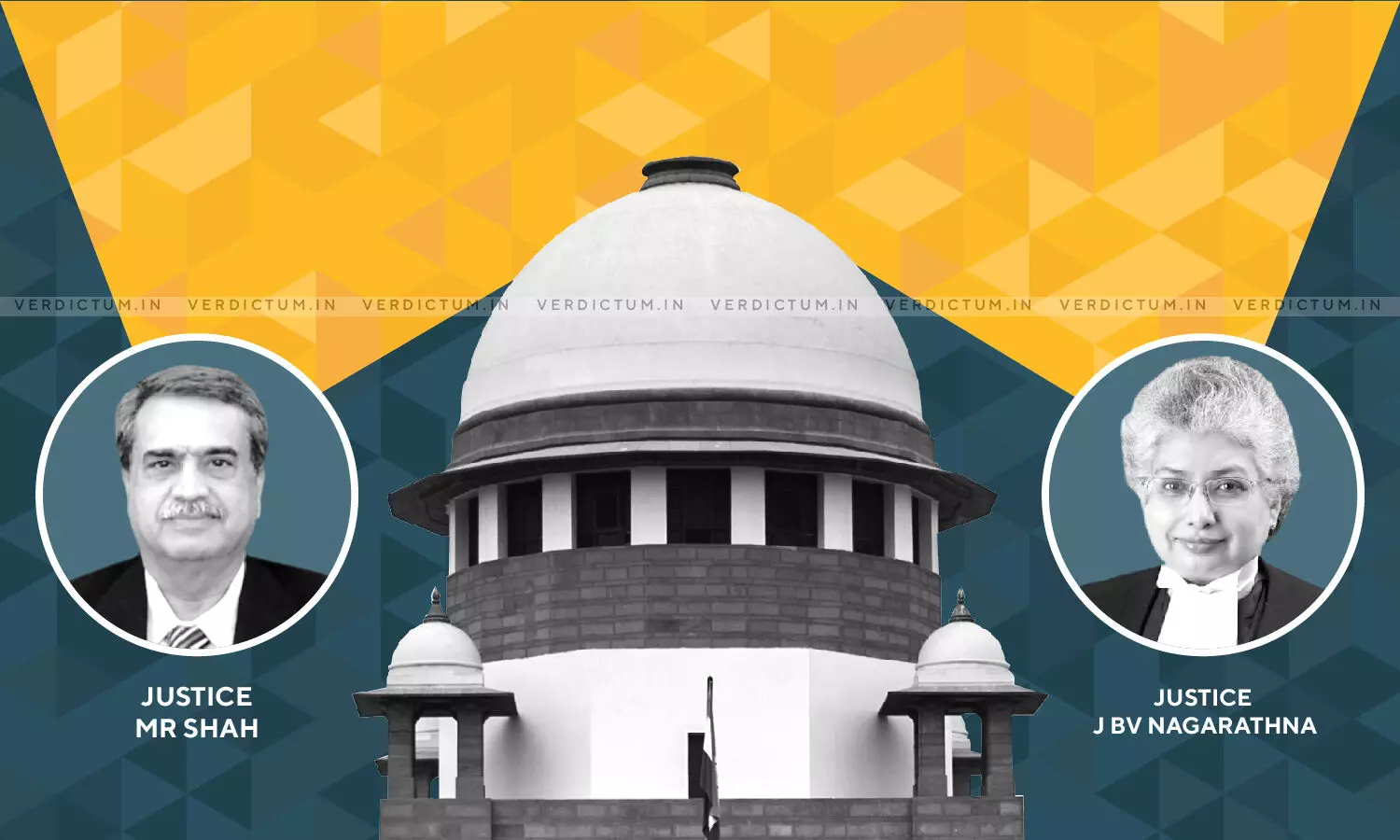
Causing Injury On Head Is Causing Injury On Vital Part of Body – SC Reverses HC's Order Converting Conviction From Section 302 to 326 IPC
 |
|The Supreme Court bench comprising of Justices M. R. Shah and B. V. Nagarathna recently quashed and set aside a judgment given by the Allahabad High Court of converting a conviction under Section 302 read with Section 34 of IPC to a conviction under Section 32 IPC.
The Apex Court heard the matter where a man was abused and beaten by the accused persons with different weapons which resulted in several injuries and later the victim was taken to the hospital where he succumbed to his injuries six days later. The accused persons were charged and tried with Section 302 (Punishment for Murder) read with Section 34 (Acts done by several persons in furtherance of common intention) of the IPC and the Trial Court convicted them and sentenced them to life imprisonment.
Aggrieved with the decision of the Trial Court the accused made an appeal before the Allahabad High Court, during the pendency of the appeal two of the accused had died, and the appeal through those persons was abated and partly allowed of the remaining accused persons and converted the conviction to conviction under Section 326 (Voluntarily causing grievous hurt by dangerous weapons or means) on the ground that victim died after six days and no fracture of head and the sentence was brought down to two years on the ground that the incident occurred 36 years back thus imposing two years sentence would be sufficient to meet the ends of justice.
The Supreme Court heard Senior Advocate Rana Mukherjee appearing for the State. He submitted that merely because the deceased died after six days could not have been the ground to convert the conviction from Section 302 IPC to Section 326 IPC.
It was contended that the High Court has not at all appreciated and/or considered the injuries mentioned in the postmortem report and the cause of death. It was argued that merely because no fracture on the head was found cannot be a ground, not to convict the accused for the offence under Section 302 IPC.
Senior Advocate Salman Khurshid appearing for the Accused submitted that the facts and circumstances of the case and have found no fracture on the head of the deceased and he died after six days of the incident and also, considering the fact that the injuries were not so serious and/or grave, the High Court had rightly acquitted the accused for the offence under Section 302 IPC and has rightly converted the same to Section 326 IPC.
The Court while setting aside and quashing the judgment of the High Court of Allahabad observed that, "it is required to be noted that though the High Court has noticed the nine injuries as noticed by Dr. B.L. Katiyar of Medical Officer at PHC, the High Court has not at all noticed and/or considered at all the antemortem injuries on the dead body of Ram Autar mentioned in the postmortem report. As per the medical evidence the cause of death was due to head injury no.1. The weapon was used on the head vital part of the body and ultimately the same proved to be fatal and the deceased died due to head injury no.1. Therefore, by no stretch of imagination the case would fall under Section 326 IPC."
"Merely because no fracture was noticed and/or found cannot take the case out of Section 302 IPC when the deceased died due to head injury no.1. As observed hereinabove causing injury on the head can be said to be causing injury on the vital part of the body and therefore a clear case of Section 302 IPC has been established and proved.," the Bench opined.
Accordingly, the Court allowed the appeal and restored the judgment of the Trial Court convicting the Respondent-accused U/s 320 IPC read with Section 34 IPC.